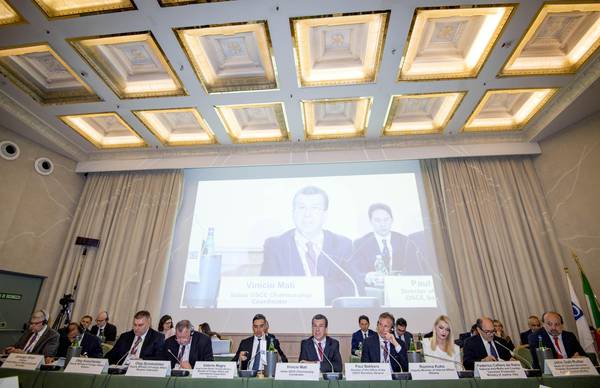Albania leads Western Balkans fight against foreign fighters
Rome, Deputy Minister of Interior Kuko attended OSCE Conference
12 May, 12:52''Albania was the first country in the region to produce a comprehensive national strategy and action plan against violent radicalization,'' stated Deputy Minister Kuko. ''Violent extremism and its consequences, like the Foreign Terrorist Fighters we are discussing, blossom in environments where security is poor, the attention of the authorities is low, where communities are left alone and hope for the future becomes a luxury,'' added Deputy Minister Kuko. ''We have partnered with local governments, municipalities, schools, civil society, and youth and are leading a process of establishing preventative mechanisms, because we understand that violent extremism is rather a vicious cycle and we must break the chain.'' This delicate context affects young people above all, who are shaping their identities and look eagerly at the future: for this reason, they represent an easy target and breeding ground for extremists to look for new recruits, by promising them something worth fighting for. ''This is a historic momentum for the country as the European perspective is a powerful narrative especially among youth. On April 17th, Albania received a crystal-clear recommendation from the European Commission, about opening negotiations with the EU.
We are aware that starting negotiations will be an extremely painful process, but this is a process we are determined go through.'' stated Deputy Minister Kuko, ''Because by negotiating with the EU, our people will be motivated of the country being in the right track, will have more hope and they will rather choose to stay in the country and not leave; because by negotiating we build better teams in our institutions and we become stronger institutionally by establishing a better culture of work while doing our homework, because by negotiating we will focused in the process and this keeps the country stable.''(ANSA).














